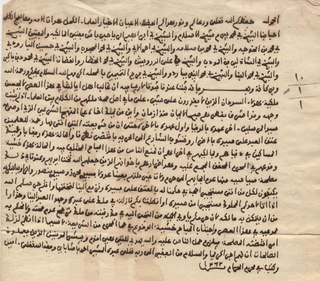
Tunis is the capital and largest city of Tunisia. The greater metropolitan area of Tunis, often referred to as "Grand Tunis", has about 2,700,000 inhabitants. As of 2020, it is the third-largest city in the Maghreb region and the eleventh-largest in the Arab world.

Family planning is the consideration of the number of children a person wishes to have, including the choice to have no children, and the age at which they wish to have them. Things that may play a role on family planning decisions include marital situation, career or work considerations, financial situations. If sexually active, family planning may involve the use of contraception and other techniques to control the timing of reproduction.

Pathfinder International is a global non-profit organization that focuses on sexual and reproductive health and rights, including reproductive health, family planning, HIV/AIDS prevention and care, and maternal and newborn health. The organization operates in more than 15 low- and middle-income countries in Africa and South Asia. Its website states: "Pathfinder is driven by the conviction that all people, regardless of where they live, have the right to decide whether and when to have children, to exist free from fear and stigma, and to lead the lives they choose."
Felicia H. Stewart (1943–2006) was a women's health physician and expert in the field of reproductive health.
MSI Reproductive Choices, named Marie Stopes International until November 2020, is an international non-governmental organisation providing contraception and safe abortion services in 37 countries around the world. MSI Reproductive Choices as an organisation lobbies in favour of access to abortion, and provides a variety of sexual and reproductive healthcare services including advice, vasectomies, and abortions in the UK and other countries where it is legal to do so. It is based in London and is a registered charity under English law.
Prostitution in Tunisia is regulated and confined to two small areas, one in Sfax and the other, Sidi Abdallah Guech in Tunis. Outside these two areas prostitution is illegal.

Russia–Tunisia relations are foreign relations between Russia and Tunisia. Both countries had established diplomatic relations in 1956, when Tunisia got its independence. Russia has an embassy in Tunis, and Tunisia has an embassy in Moscow.
The Irish Family Planning Association (IFPA) is an Irish charity working to enable people to make informed choices about sexuality and reproduction. The organisation promotes the right of all people to sexual and reproductive health information as well as dedicated, confidential and affordable healthcare services.

Tewhida Ben Sheikh was the first modern Tunisian and North African woman to become a physician. She was also a pioneer in women's medicine, in particular contraception and abortion access.
Francine Coeytaux, founder of the Pacific Institute for Women's Health, is an American-based French public health specialist and abortion rights activist who has developed and evaluated family planning and reproductive health programs. She is known for her work on comprehensive reproductive health services, abortion and new reproductive technologies. She was an Associate at the Population Council in New York City where she started an international program to address the problem of unsafe abortion, collaborated on the public introduction of Norplant and RU 486, and helped develop reproductive health activities in Sub-Saharan Africa.

Slavery in Tunisia was a specific manifestation of the Arab slave trade, which was abolished on 23 January 1846 by Ahmed I Bey. Tunisia was in a similar position to that of Algeria, with a geographic position which linked it with the main Trans-Saharan routes. It received caravans from Fezzan and Ghadamès, which consisted solely, in the eighteenth century, of gold powder and slaves, according to contemporary witnesses.
Grace Ebun Delano is a nurse and midwife who has played a key role in pioneering family planning and reproductive health services in Nigeria. She co-founded the Association for Reproductive and Family Health of which she was director for many years, has acted as consultant for many different organisations across Africa, and has written and co-authored numerous books and articles on women's health and related topics. In 1993, she was given the World Health Organization Sasakawa Award for her work in health development.

Sayida Ounissi is a Tunisian politician representing the party of Ennahdha. She currently serves as Secretary of State for Vocational Training.

Sofiane Bouhdiba is a Tunisian demographer, born on 12 April 1968. He is Professor of Demography in the department of Sociology in the University of Tunis. He has taught in many universities in Europe, Africa and the United States, and has participated in a great number of international conferences, with a focus on mortality and morbidity. As an international consultant to the United Nations, he had the opportunity to observe closely the history of the fight against major diseases in the world. He has also participated in numerous scientific and humanitarian missions in sub-Saharan Africa. Professor Sofiane Bouhdiba is well-known for the realism of his recommendations, and has been appointed as an expert in Demography before the Tunisian Parliament.
Foreign aid for gender equality in Jordan includes programs funded by governments or non-governmental organizations (NGOs) that aim to empower women, close gender based gaps in opportunity and experience, and promote equal access to education, economic empowerment, and political representation in the Hashemite Kingdom of Jordan.

Fatma Chamakh-Haddad or Fatma Haddad-Chamakh was a professor, philosopher, feminist and Tunisian activist.

Emna Mizouni is a Tunisian internet and human rights activist, free-lance journalist, communications expert and business executive. In July 2019, After successfully helping to prepare RightsCon Tunis, Access Now, the international non-profit human rights group intent on an open Internet, announced her appointment to serve in their global board of directors. In March 2013, Mizouni founded Carthagina, an initiative designed to create interest in Tunisia's cultural heritage at home and abroad. In August 2019, she was honoured as Wikimedian of the Year at Wikimania, as a result of the leading role she has played in the development of Arab and African communities as well as her success in promoting the history and culture of Tunisia.

Abir Moussi is a Tunisian lawyer and politician. She has been the president of the Free Destourian Party since 2016 and a member of Parliament since 2019. Abir Moussi is considered one of the most important and famous Tunisian politicians who defend the civil state and Bourguiba's approach. She is also known for her absolute rejection of political Islam movements and all forms of confusion between religion and politics. On 3 October 2023 Abir Moussi was arrested in front of the presidential palace of Carthage, in a series of political arrests and crackdown on the opposition launched by Tunisian president Kais Saied.
Alya or Alia Baffoun is a Tunisian feminist and sociologist.

Chedly Ayari was a Tunisian politician, economist, and diplomat. He served in several ministerial positions under the government of Habib Bourguiba and was President of the Central Bank of Tunisia from 24 July 2012 to 16 February 2018.











